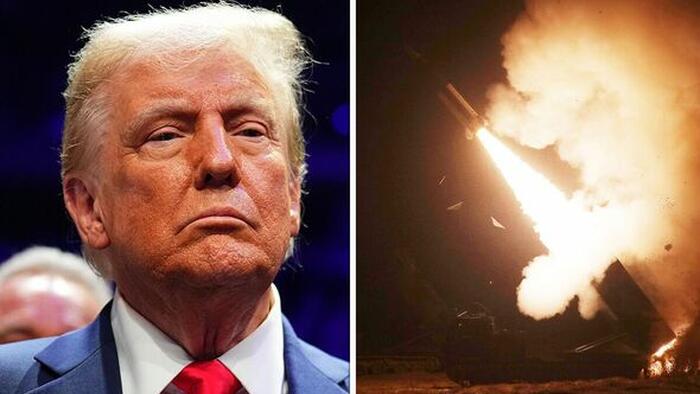In a recent interview with Time Magazine, President-elect Donald Trump expressed his strong opposition to the Biden administration’s decision to support long-range missile strikes into Russian territory, which were authorized last month. Trump articulated his concerns, stating, “I disagree very vehemently with sending missiles hundreds of miles into Russia. Why are we doing that?” He indicated that such actions only serve to escalate the conflict in Ukraine, exacerbating an already volatile situation. Trump’s remarks come in the context of rising tensions between the U.S., Ukraine, and Russia, particularly following Ukraine’s use of U.S.-provided Army Tactical Missile Systems (ATACMS) and British Storm Shadow missiles to strike targets in Russia.
Trump’s criticism followed a significant escalation in military actions from Ukraine, which led to intensified responses from Russia. Following Ukraine’s strikes, Russia retaliated with a new hypersonic missile called the Oreshnik, showcasing its capacity to respond to perceived threats dynamically. The Russian Defense Ministry has assured that they would respond to the use of Western long-range weapons, making it clear that the situation remains precarious and possibly edging toward a larger conflict. Trump’s remarks reflect an awareness of the delicate balance that must be maintained to avoid further escalation and the potential for a nuclear showdown, considering Russia’s warnings regarding such military actions.
While campaigning, Trump pledged to bring an end to what he termed a “proxy war” in Ukraine, though he has yet to provide a detailed strategy on how he intends to achieve this goal. When asked if he would abandon support for Ukraine, he clarified his stance by emphasizing the necessity of reaching an agreement rather than withdrawal, highlighting the complexity of the conflict. This reflects Trump’s broader approach to foreign policy, which prioritizes negotiation over military confrontation. He believes that meaningful dialogue is essential to easing tensions and reducing casualties on both sides.
During the interview, Trump was candid about the humanitarian toll the conflict has taken, underscoring the high number of fatalities among young soldiers, which he suggested are significantly underestimated by public reports. He described the situation as “staggering” and expressed his deep concern for the lives lost in the war. This focus on the human cost illustrates a potential pivot in U.S. policy under Trump’s leadership, possibly leading to a greater emphasis on peace negotiations and humanitarian considerations rather than further military involvement.
The escalating backdrop of missile strikes, the response from Russia, and Trump’s outspoken disapproval creates a complicated landscape for U.S. foreign policy. The ongoing conflict in Ukraine has seen significant military developments, raising questions about the future of U.S. involvement and NATO’s approach. As tensions rise, the dialogue surrounding the conflict becomes increasingly urgent, with potential ramifications not just for the U.S. and Russia but for global security as a whole. The stakes are undeniably high, and the choices made by current and future leadership will have lasting impacts.
In summary, Trump’s positions signal a noteworthy divergence from the current administration’s strategies in Ukraine. His emphasis on avoiding further escalation, prioritizing dialogue, and addressing the humanitarian crisis may appeal to a war-weary public seeking a new direction. As the conflict continues to evolve, the effectiveness of diplomatic engagements and the management of military actions will be critical in determining the outcome of U.S. involvement in Ukraine as well as broader implications for international relations and military policy.

